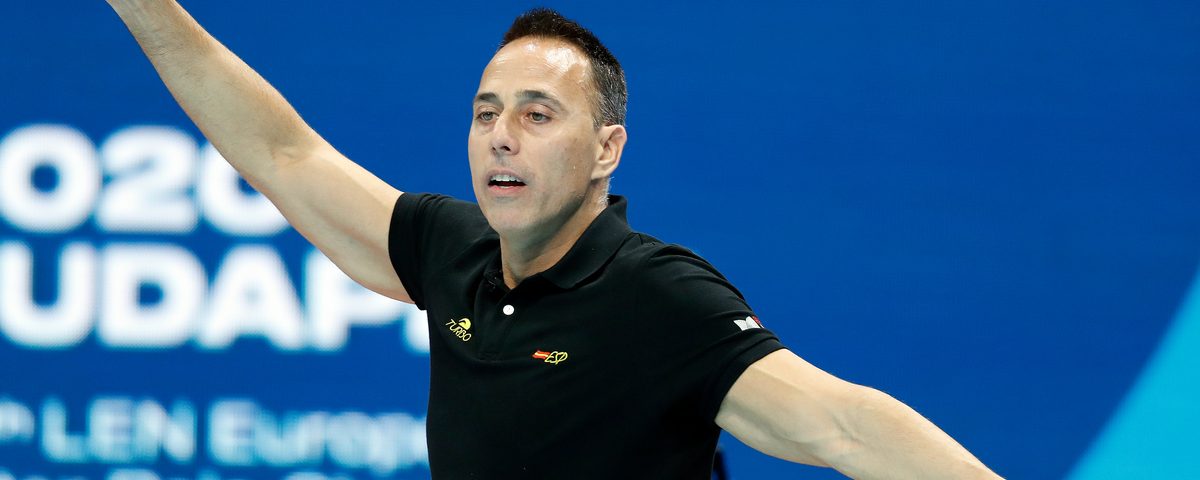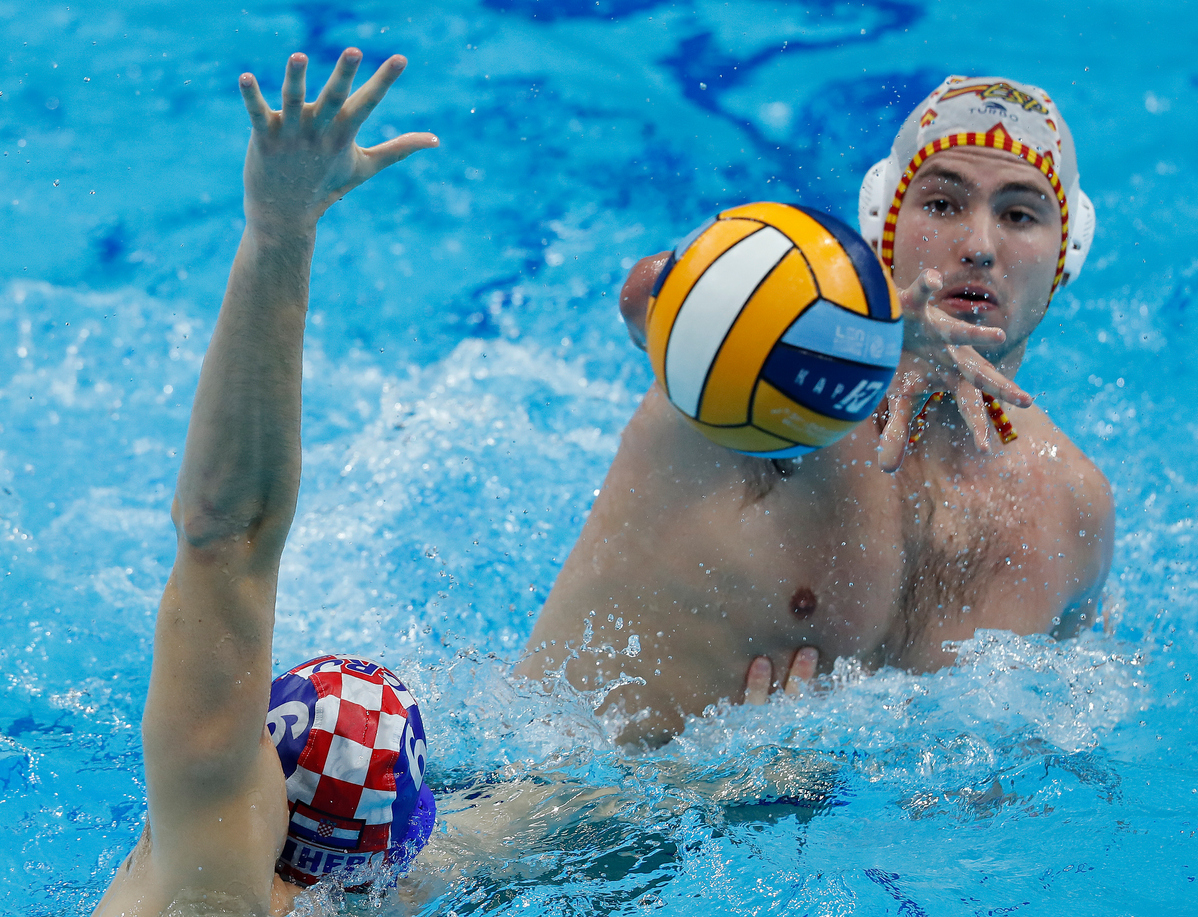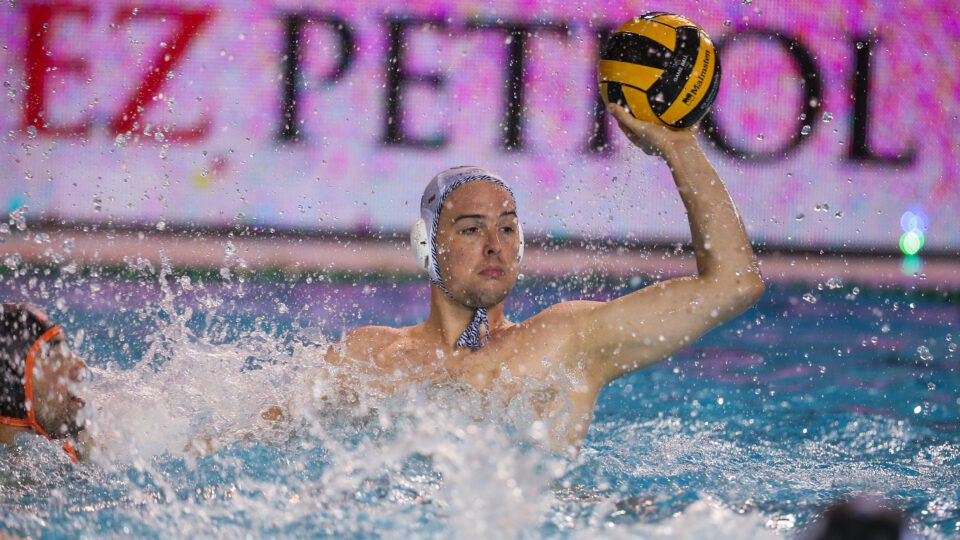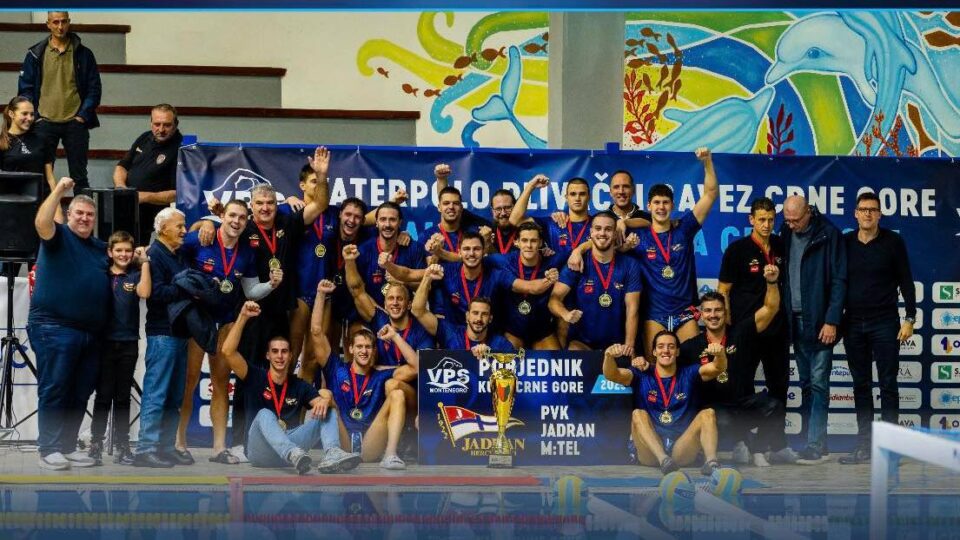The Spanish water polo has made great progress in the last few years. The male and the female national team have collected a lot of medals at important competitions.
In the last three years, the Spain men’s water polo team clinched two silver medals at the European Championships (2018, 2020), silver at the 2019 World Championships, bronze in the 2018 World League and two medals in the LEN Europa Cup (silver in 2018 and bronze in 2019).
David Martin, who has been working as a head coach of the male national team since 2017, talks about the series of successes and his view on the future of water polo in an interview with Total Waterpolo. Martin, who won the silver medal at the 2009 World Championships, led the team as a coach to the silver at the WCH ten years later. From 2009 to 2019, Spain hasn’t reached the semifinals at the World Championships, but today, it is a team that can beat everyone.
First of all, how do you feel? How difficult is it to live in Spain these days?
The situation in the country is a complete stop for all activities, except for essential activities. There are a lot of deaths and contagions, and the situation in the coming weeks will be worse. At this time, athletes must be an example and stay at home, like the rest of the population.
Let’s talk about sport. The golden era of Spanish water polo was a period between 1991 and 2001. But, after that, there were ups and downs. After you were appointed as the head coach of Spain, the national team has returned to the podium at major competitions. Did you have a long-term project for the development of the national team? What were your objectives when you started to work with the national team?
When I started working with the national team after the Olympic Games in Rio 2016, the idea was to build a strong team for Tokyo 2020, but with the possibility of competing at the 2018 European Championships in Barcelona. We created a team with a base of experienced players and talented young players. After the World Championships in Budapest 2017, we saw clearly which way to go. I was sure that if we worked hard all year, and with the future incorporation of Felipe Perrone (who returned to the Spanish national team after he played for Brazil – Ed.), we could win a medal at the Barcelona European Championships.
In 2014, Barceloneta won the Champions League, which was quite surprising. Was that success a turning point for the Spanish water polo? A few years later, the national team started to win medals.
Yes, with Barceloneta we won the title in 2014, playing great water polo for the spectators. I think this title convinced us of the correct way to play for Spanish players. The Barceloneta coach (my brother) and I have a similar vision of water polo, and this has been transferred to the national team.
In the past three years Spain has won a medal in almost every competition, but you haven’t won gold. You lost three finals. Are you satisfied with these successes, or you think that Spain deserved at least one of the titles?
Good question! I will not be the one to say whether it is fair or not. But I think that we have been the most regular team in the last two years. I am always positive. Since Rome 2009, our limit was in the quarterfinals, and now it is in the finals. If we continue working like this, I am sure that the gold medal will come sooner rather than later.
A victory over Spain has become “a mission impossible” for Serbia and Croatia. What is a “recipe” for wins over the South Slavic countries?
I honestly think it’s anecdotal. Serbia and Croatia are the two best teams in the last ten years, and it is very difficult to beat them, you have to play a perfect match. But for us, it is very important to be able to compete against them because psychologically it shows us that we can compete against the best.
What do you think about the new rules that were approved last year. How did they impact the water polo game? Does water polo go in the right direction with the new rules?
I think the impact has been positive because players with good technical skills are now more protected. Anyway, I think the players, coaches, and referees are in the adaptation phase. I think the direction is very good, but we should not make the mistake of thinking only about protecting attackers. We must protect the players who play fair, both in defense and attack.
In your opinion, did water polo changed in any way from the time you were a player compared with today’s game (tactics, physics, speed, player positions…)?
Of course, I think the change has been on a tactical level. Currently, with all the exploration and study of the rivals, the tactical variability of the teams is very high, and for that, the players must be very well prepared physically, technically and tactically. Also, with the new rules, the speed of the game has increased in all actions. This requires a higher concentration capacity and physical resistance of the players.
The future is for players who master all positions in the game!
A few years ago, Munarriz was introduced as a new Spanish rising star, today he is undoubtedly among the best players in the world. Then came Granados and Tahull. Next on the horizon is Sanahuja. Four of them are covering all positions (except goalkeeper). Looks like Spain could dominate in the next decade. What is your opinion on that? How does Spain manage to produce such good players in the right positions?
It is true that we have young players with great potential in important positions. This ensures a good future for the team but to say that we will be the team that will dominate the international circuit in the future is very hasty. What is clear is that Spain has returned to the elite. In the coming years, it will always be among the favorites in the medal fight. Regarding our players, I think Munarriz will be the “total player” of the future because he dominates all game positions, and Tahull may be the best center in the world in the coming years. Granados and Sanahuja are players with a lot of individual talent, with the great aquatic ability and an excellent goal capacity.
Alberto Munarriz Photo: Laszlo Balogh/Total Waterpolo
Munarriz is a natural talent, a player who left Pamplona and who was quickly able to play for a club like Atlètic-Barceloneta and the national team.
Martin said that all the mentioned players were well trained at the beginning of their careers:
The secret is the work in the clubs complemented by the High-performance centers of Madrid and CAR of Sant Cugat in Barcelona. In these centers, the preparation with kids from 14-18 years old) is done by Svilen Piralkov (assistant to the national team), and the work is based on creating complete players with good technical skills that can adapt to all positions.
How can water polo “fight” against other sports? (In terms of getting media coverage, fans and general interest which leads to sponsors)
It’s difficult to answer. If we want our sport to grow and children want to do water polo, we must create idols for children. Many times we are thinking about how to make people watch water polo on television when what we have to do is promote our great marketing product, the players. If we create idols, more people will want to see water polo.
For the end, Martin joined a #stayhome campaign with a message to our readers:
FOR YOU, FOR ALL, FOR THE HEALTH WORKERS … STAY AT HOME!!!







